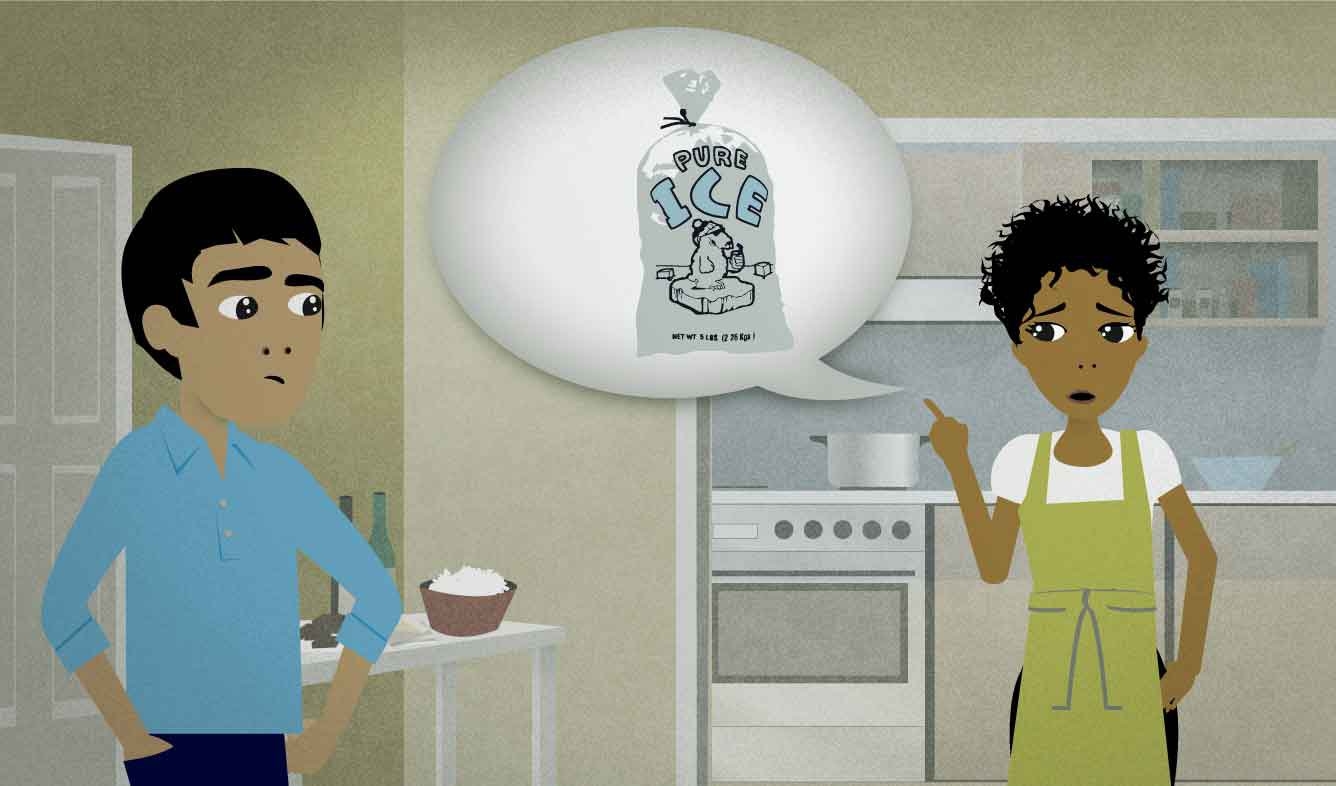“Actually, Mark, can you do me a huge, huge favor? Could you run down to the convenience store and pick up a bag of ice?”
You're having a dinner party at your apartment. You're getting ready and you realize that you forgot to get ice for drinks. You're too busy with cooking, so you ask one of your guests who arrived early for a favor.
Actually, Mark, can you do me a huge, huge favor? Could you run down to the convenience store and pick up a bag of ice?
Want Video and Sound? Follow us on YouTube

pick up (something)
The phrase "pick up ___" can mean to buy something at a store. When you use this phrase, it sounds like you are buying something quickly while you are on your way to somewhere.
Actually, (sentence)
Start a sentence with "Actually..." when you need to ask someone to change plans or do something different than they expected. Beginning with "Actually..." is polite and makes it seem like you're sorry for inconveniencing the listener.
Can you do me a favor?
If you need to ask someone to do something for you which is extra work or a little annoying for that person, begin with "Can you do me a favor?"
For example:
Hey, can you do me a favor? Can you pass me that bottle of soap over there?
A: Can you do me a favor?
B: Sure.
A: Can you watch my stuff for me for a few minutes? I'll be right back.
a huge favor
When someone does something to help you which takes a lot of work, a lot of time, or a lot of money, they are doing you "a huge favor".
"Huge" means "very big". It often appears in this phrase instead of other words that mean "really big" like "enormous", "gigantic", etc.
run down (to somewhere)
Use this phrase to talk about going somewhere close by for a very short time. You can "run down" to places like:
- the bank
- the supermarket
- the drug store
- your office
This is a casual phrase that you can use with friends, family, and coworkers.
Could you (do something)?
Ask someone to do something with this phrase.
"Could you ___?" is pretty neutral, so you can use it in a lot of different situations: with people who are higher status, lower status, friends, strangers, etc.
